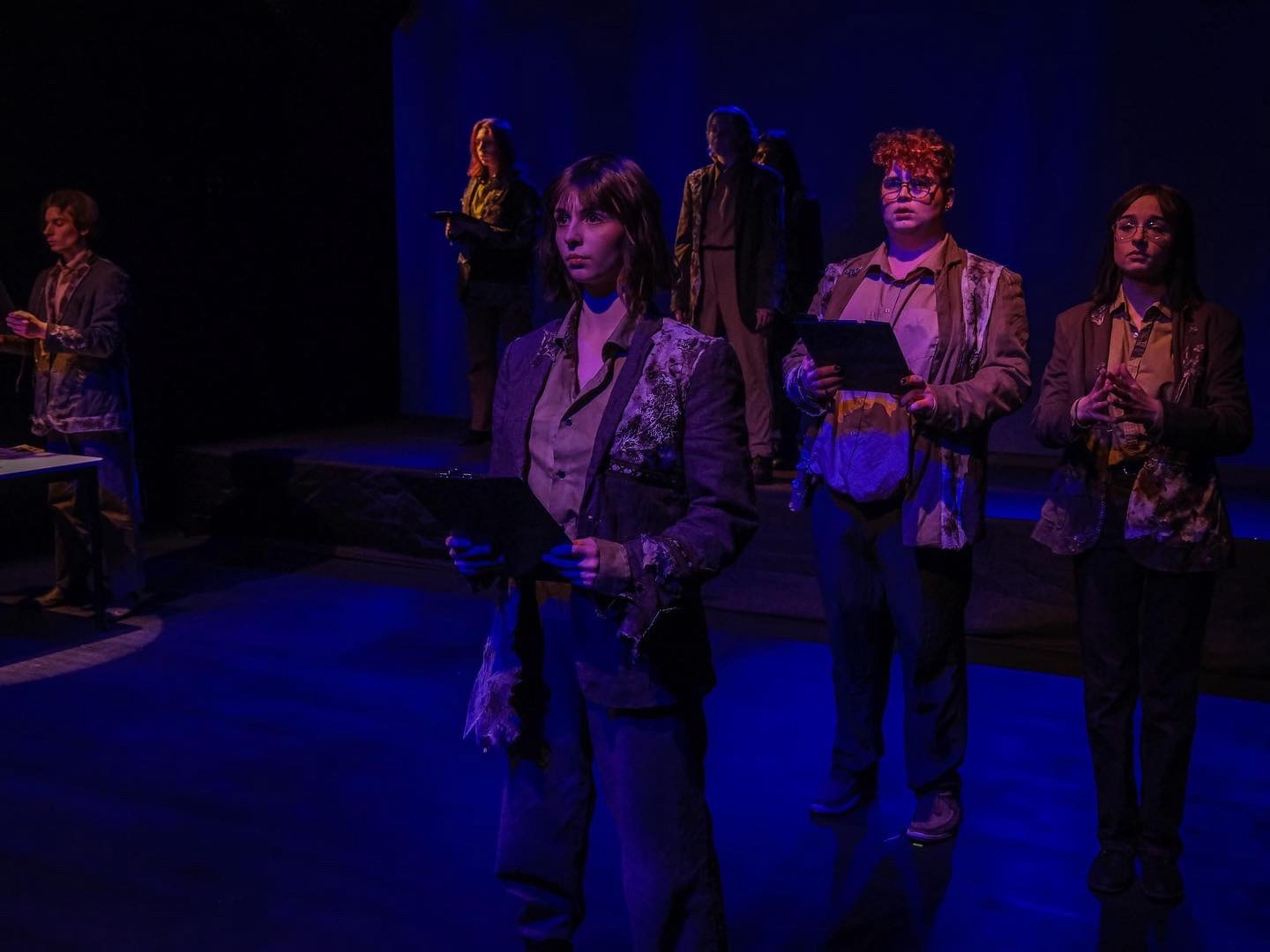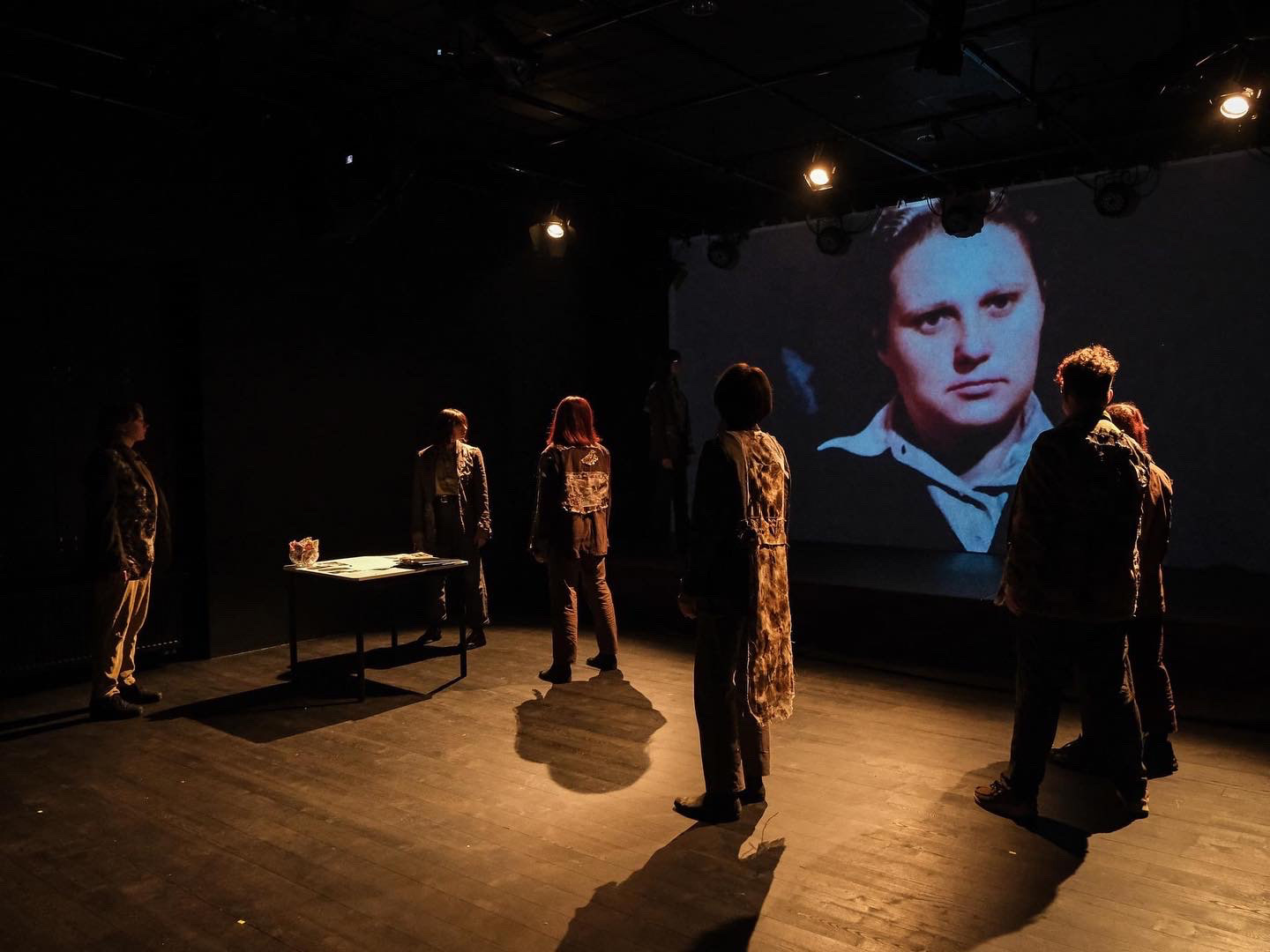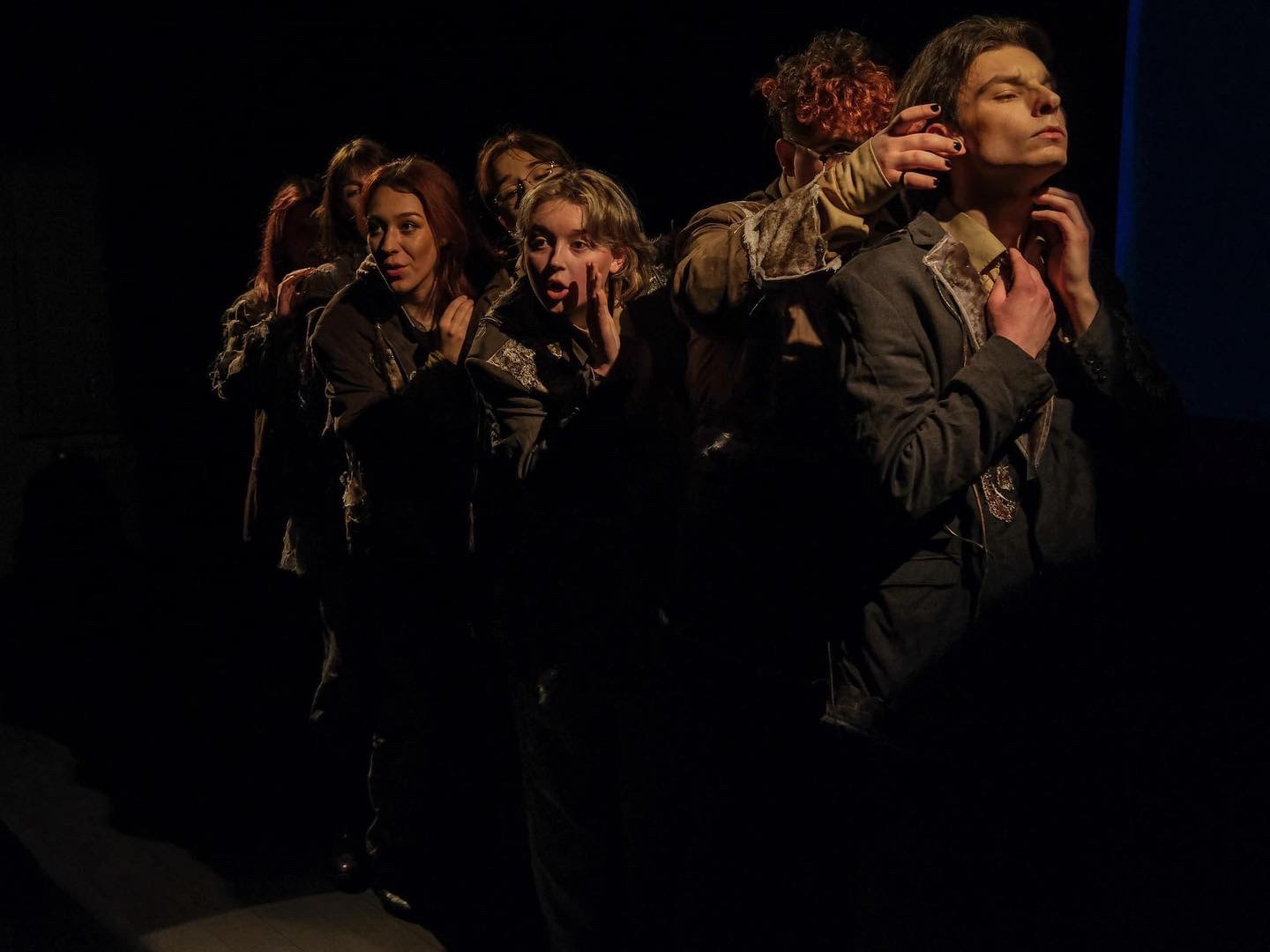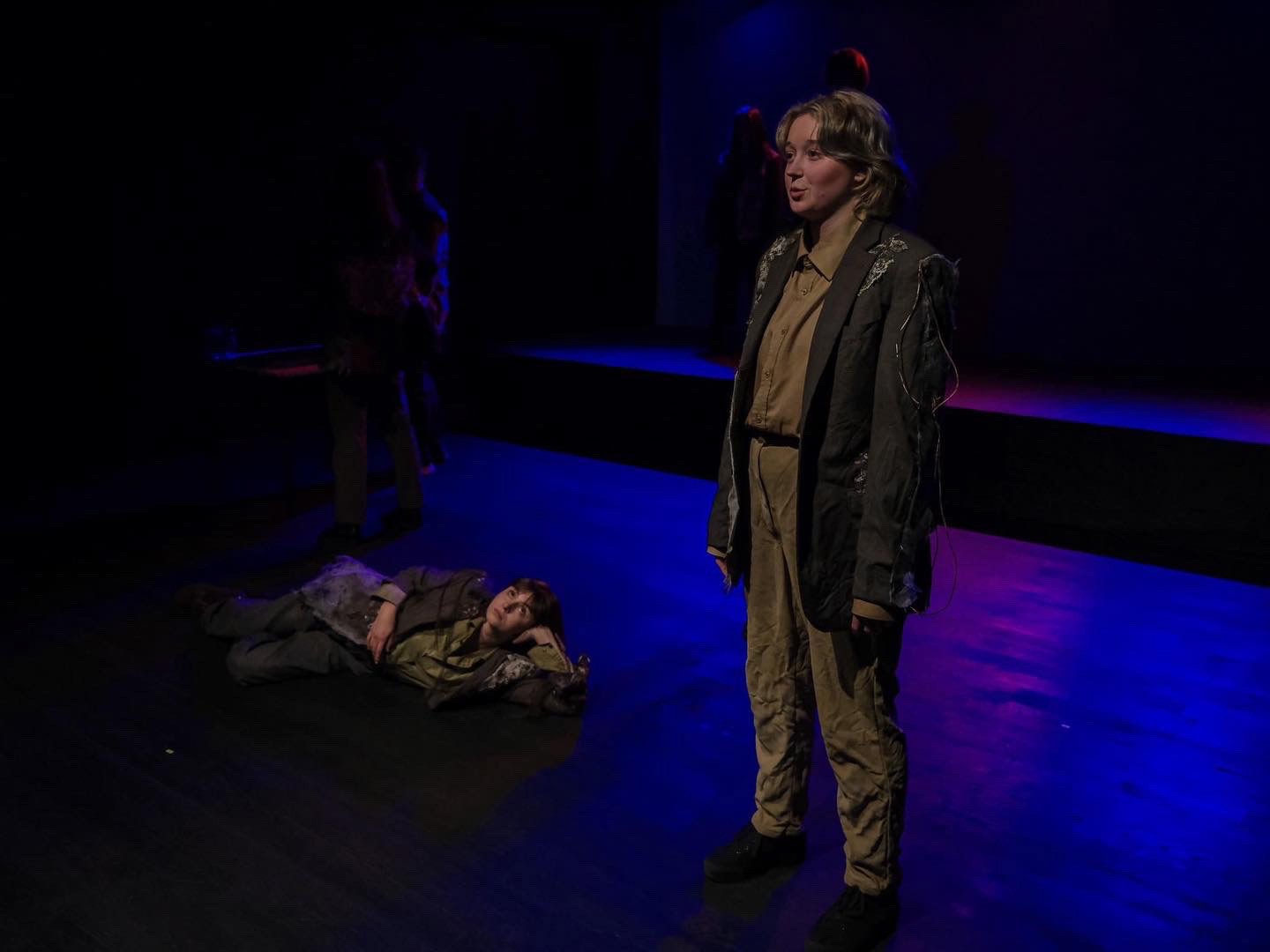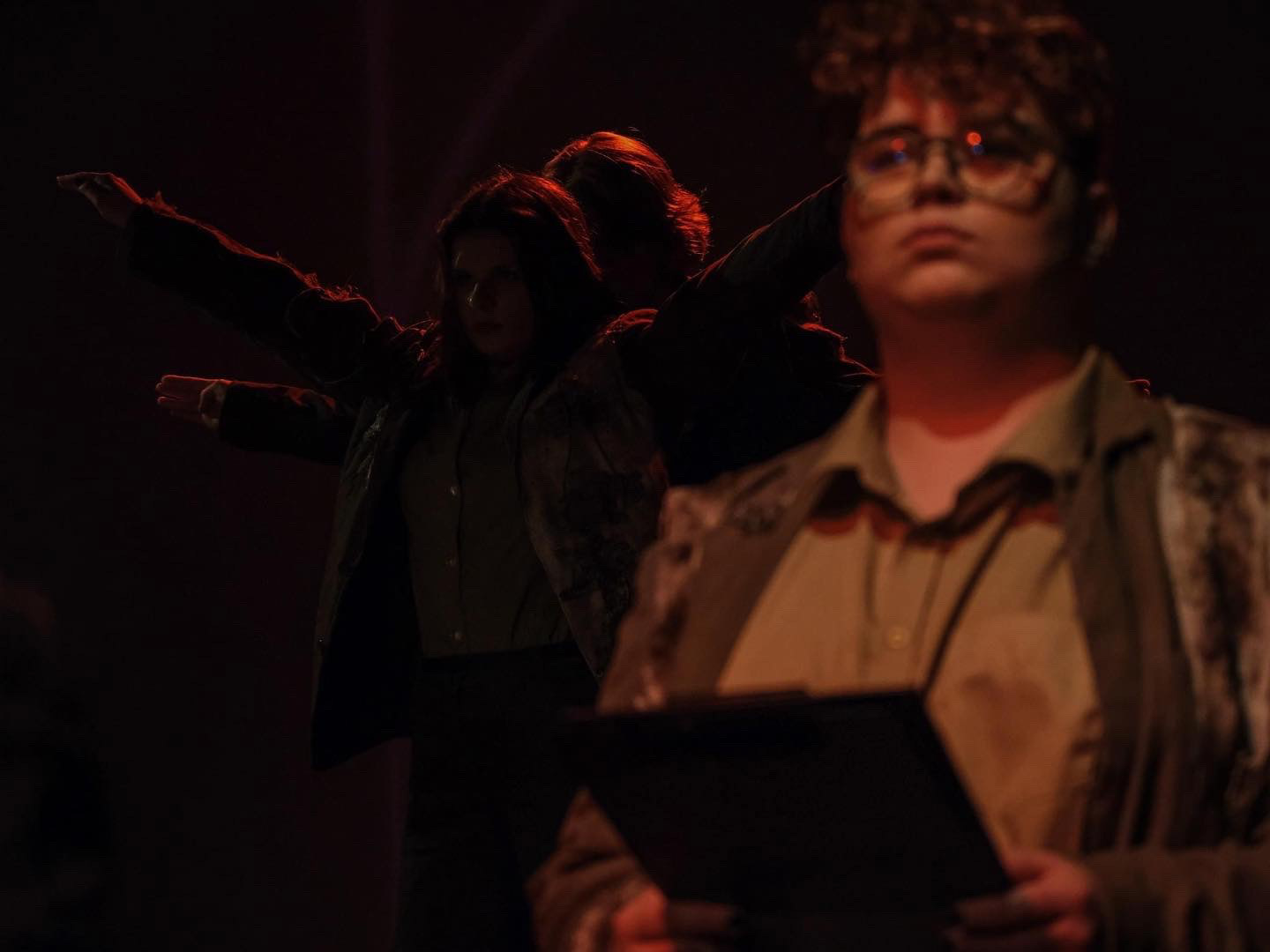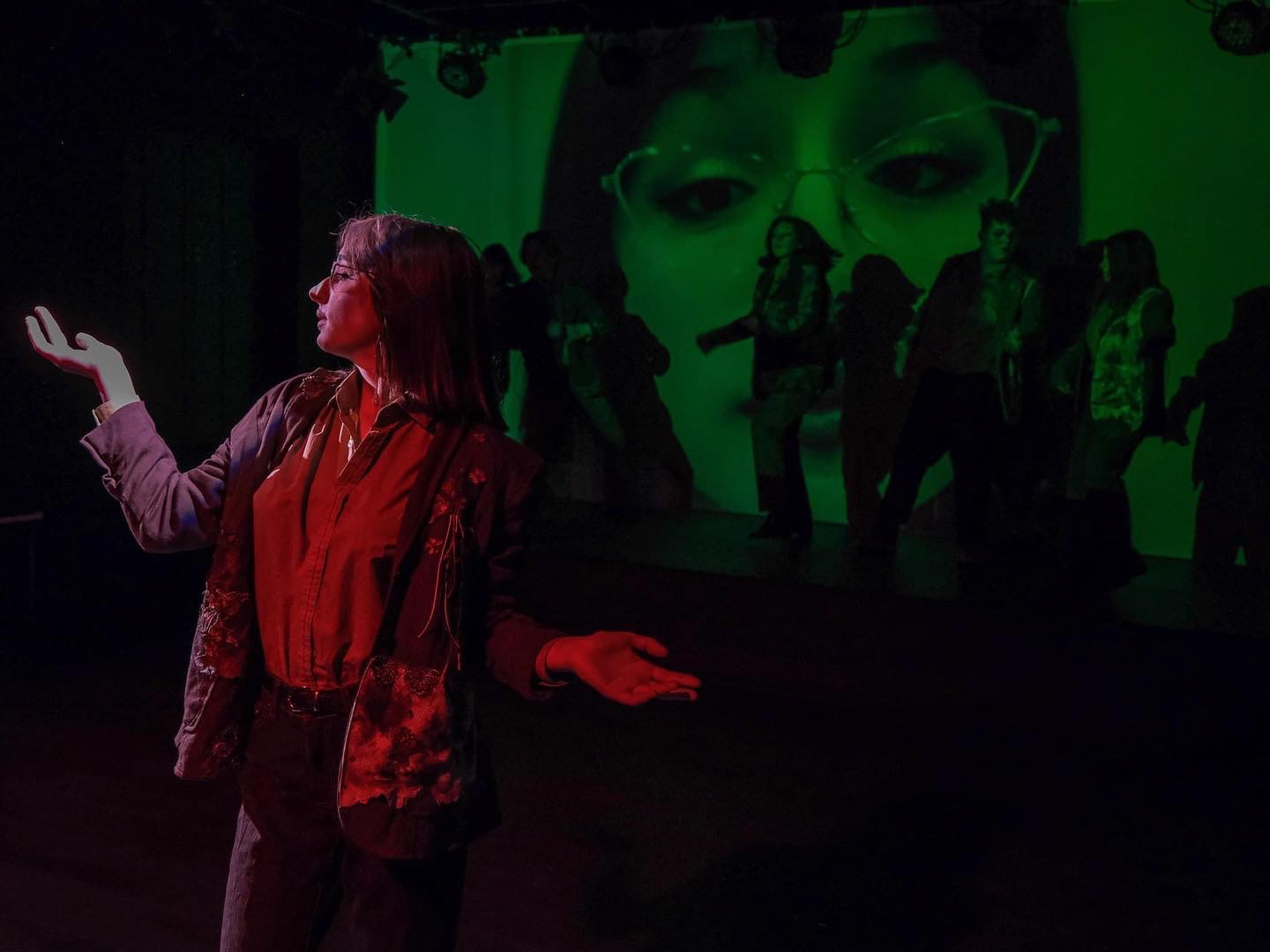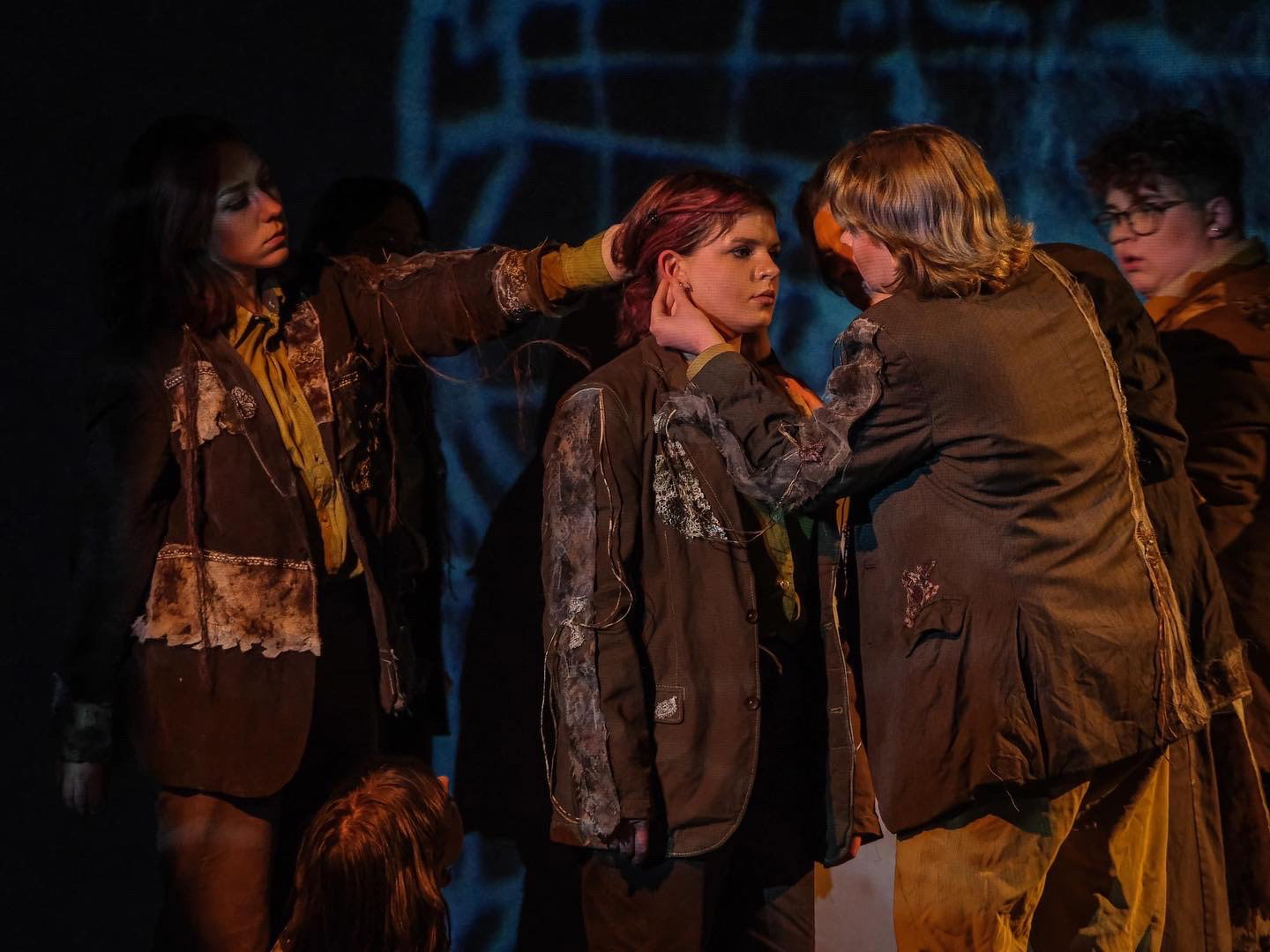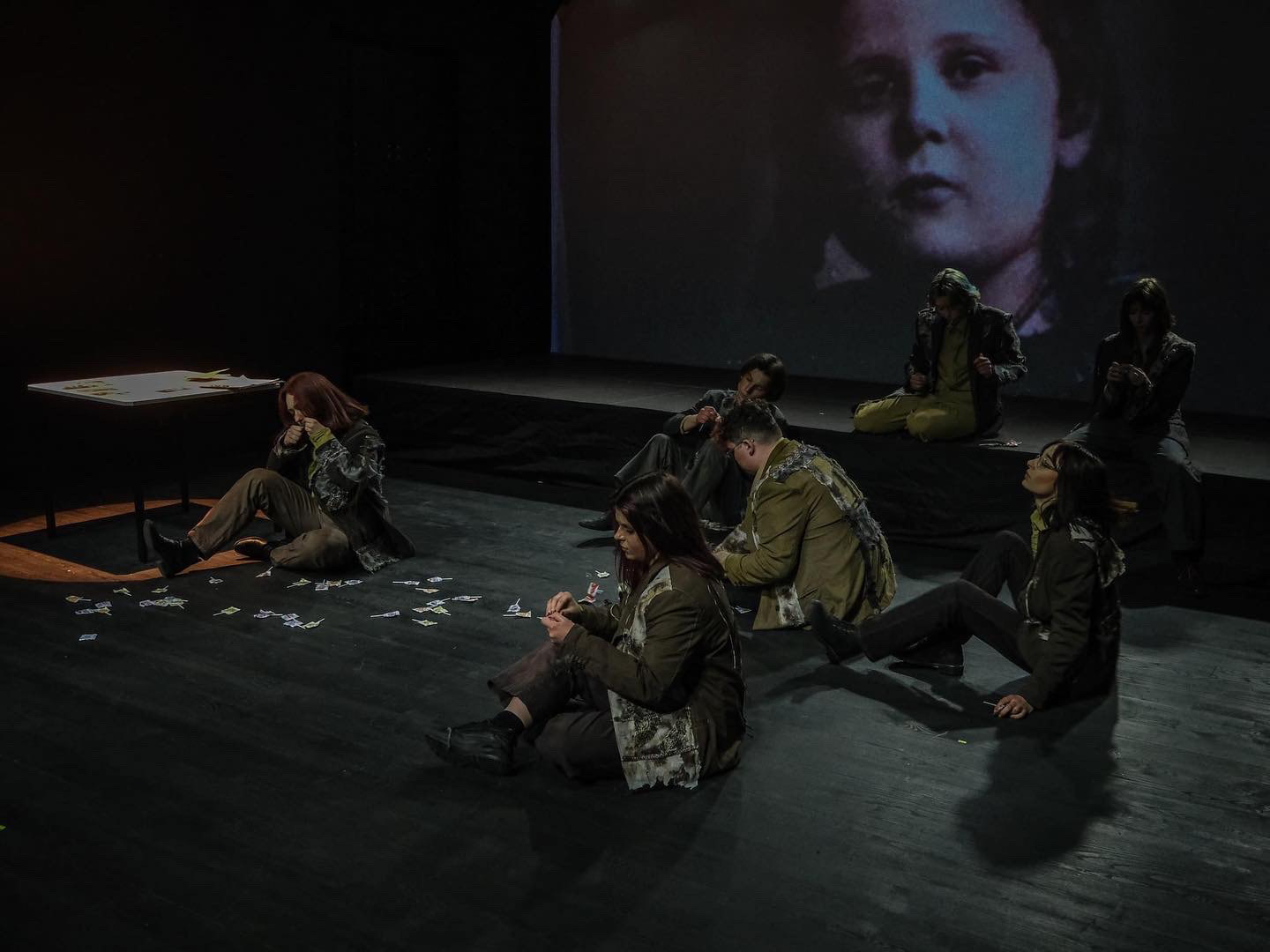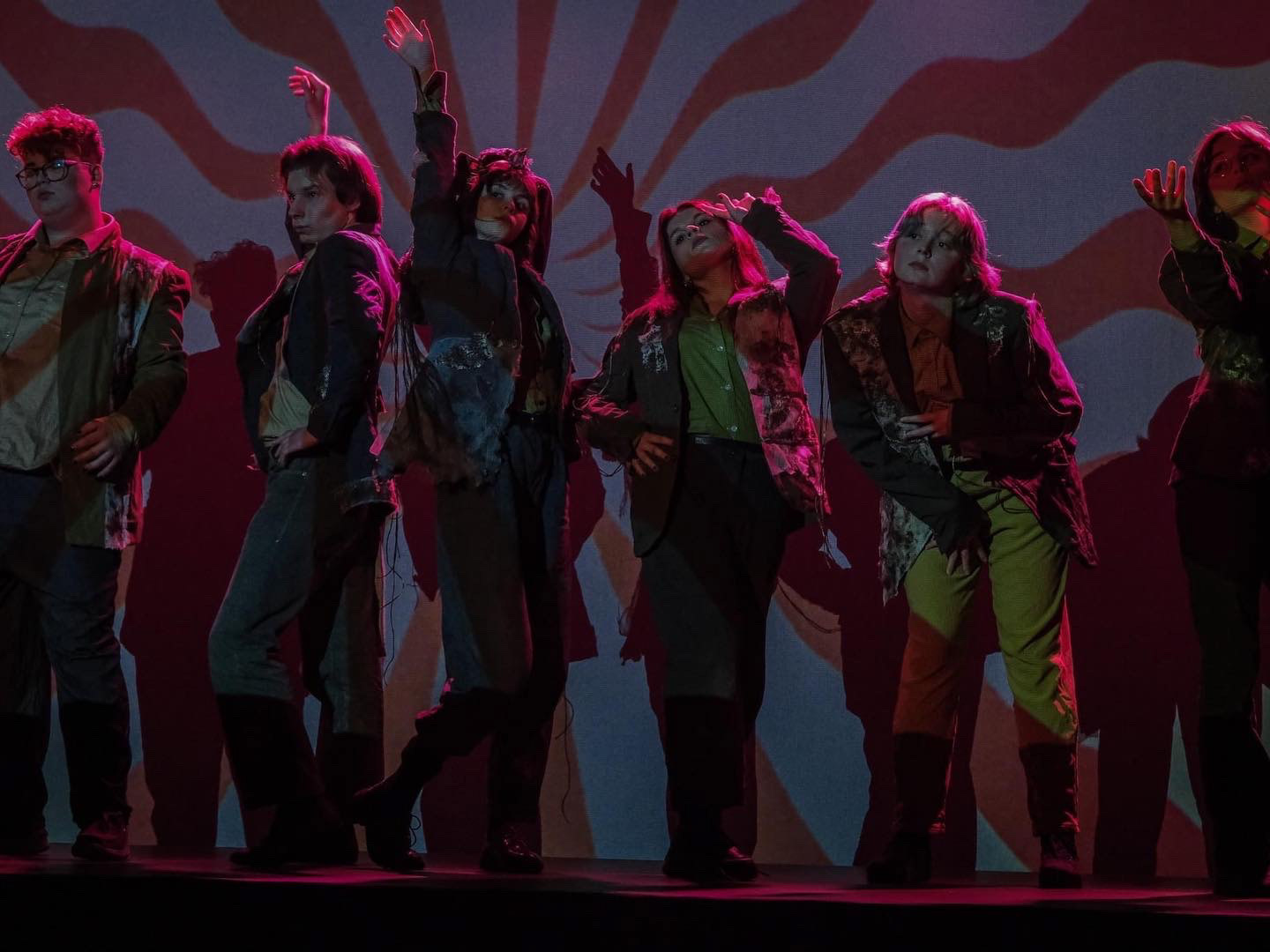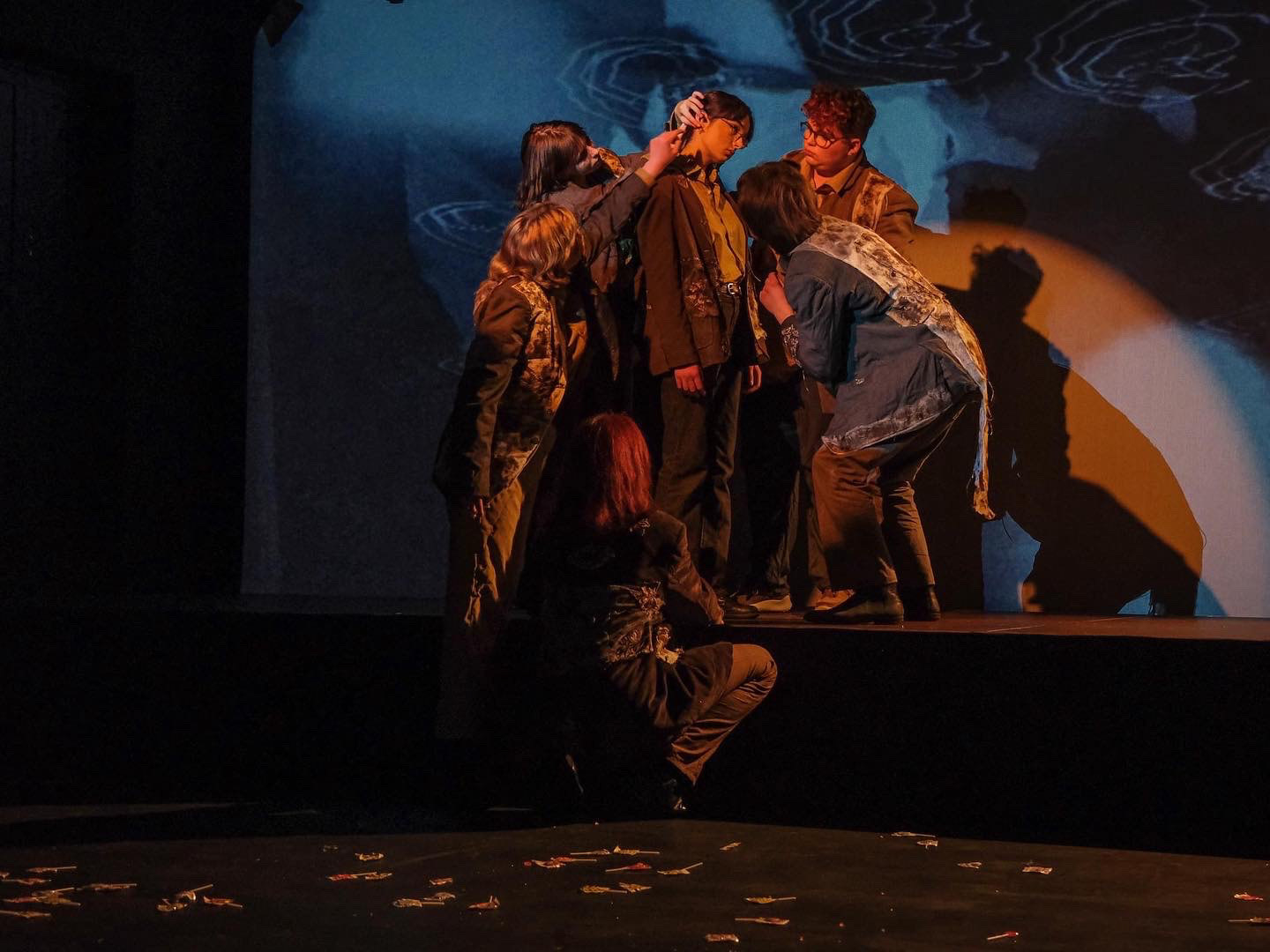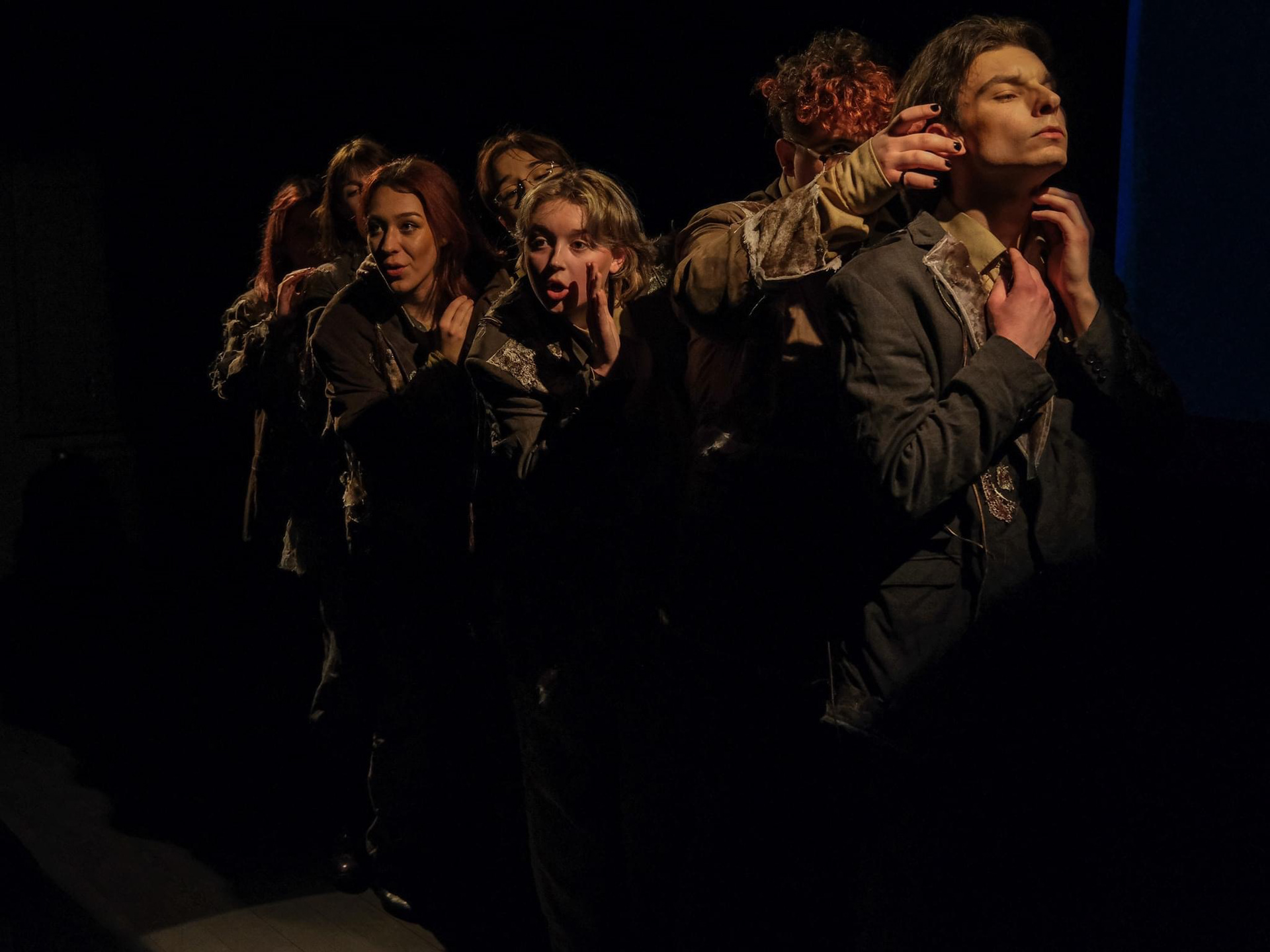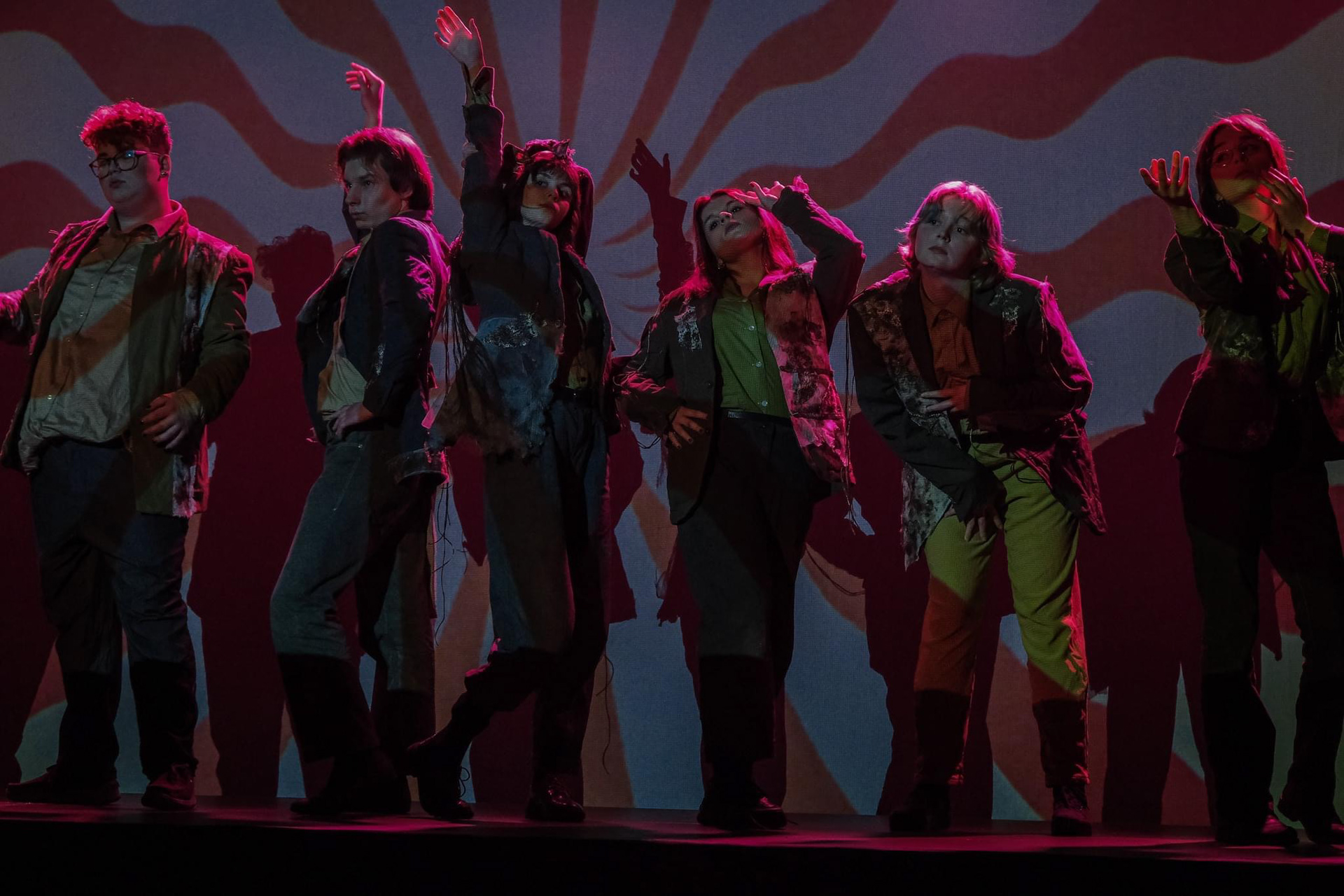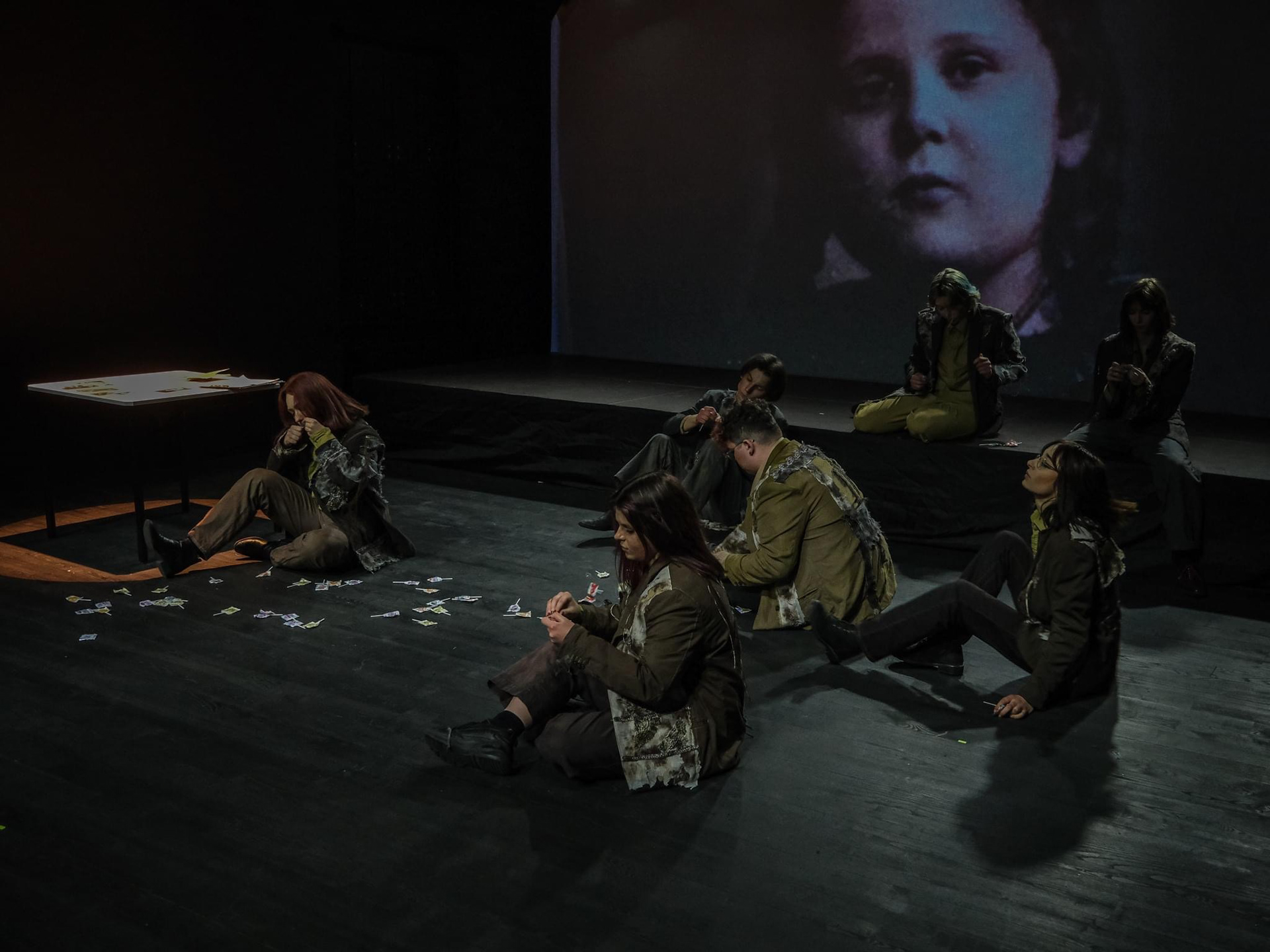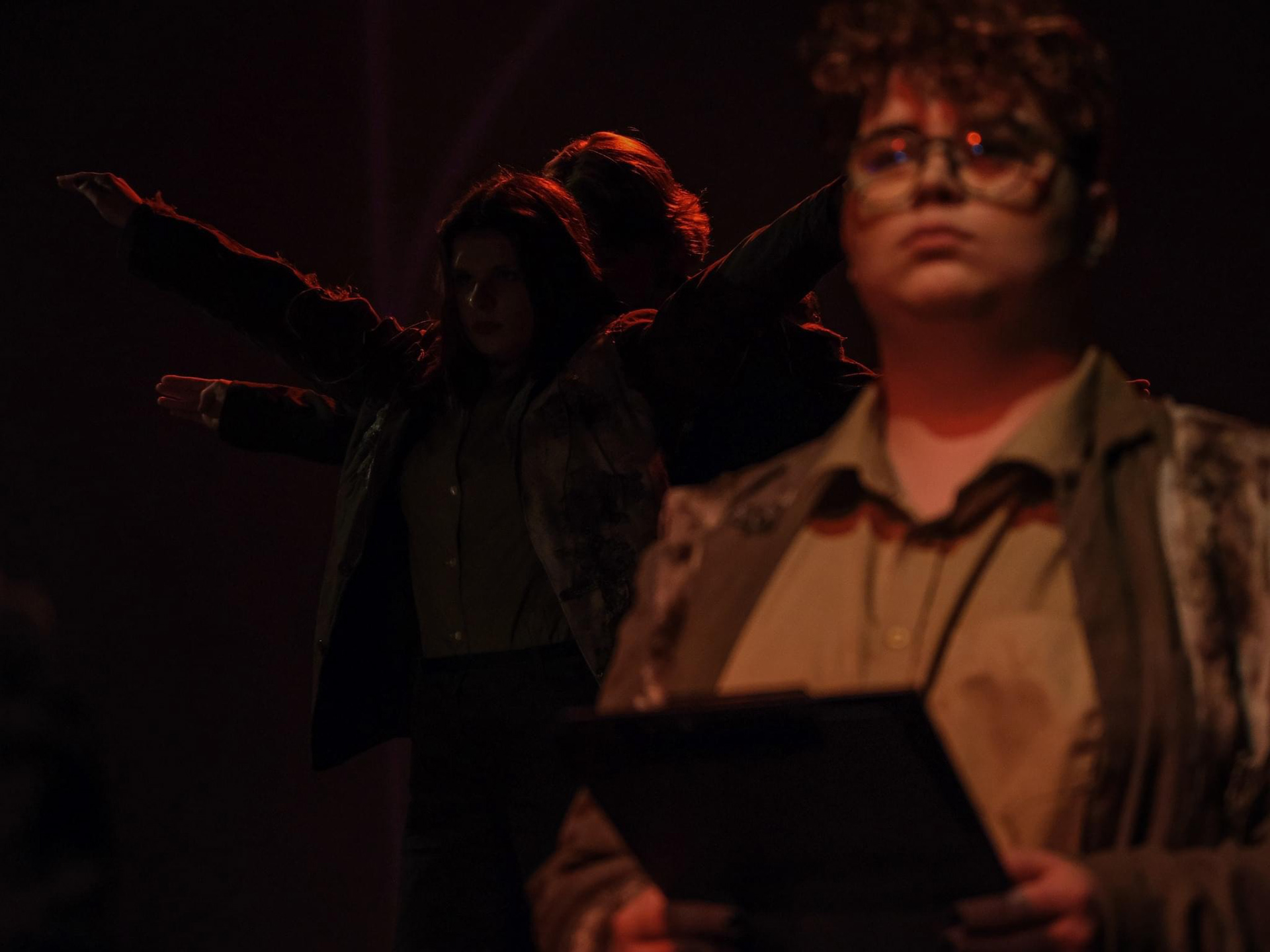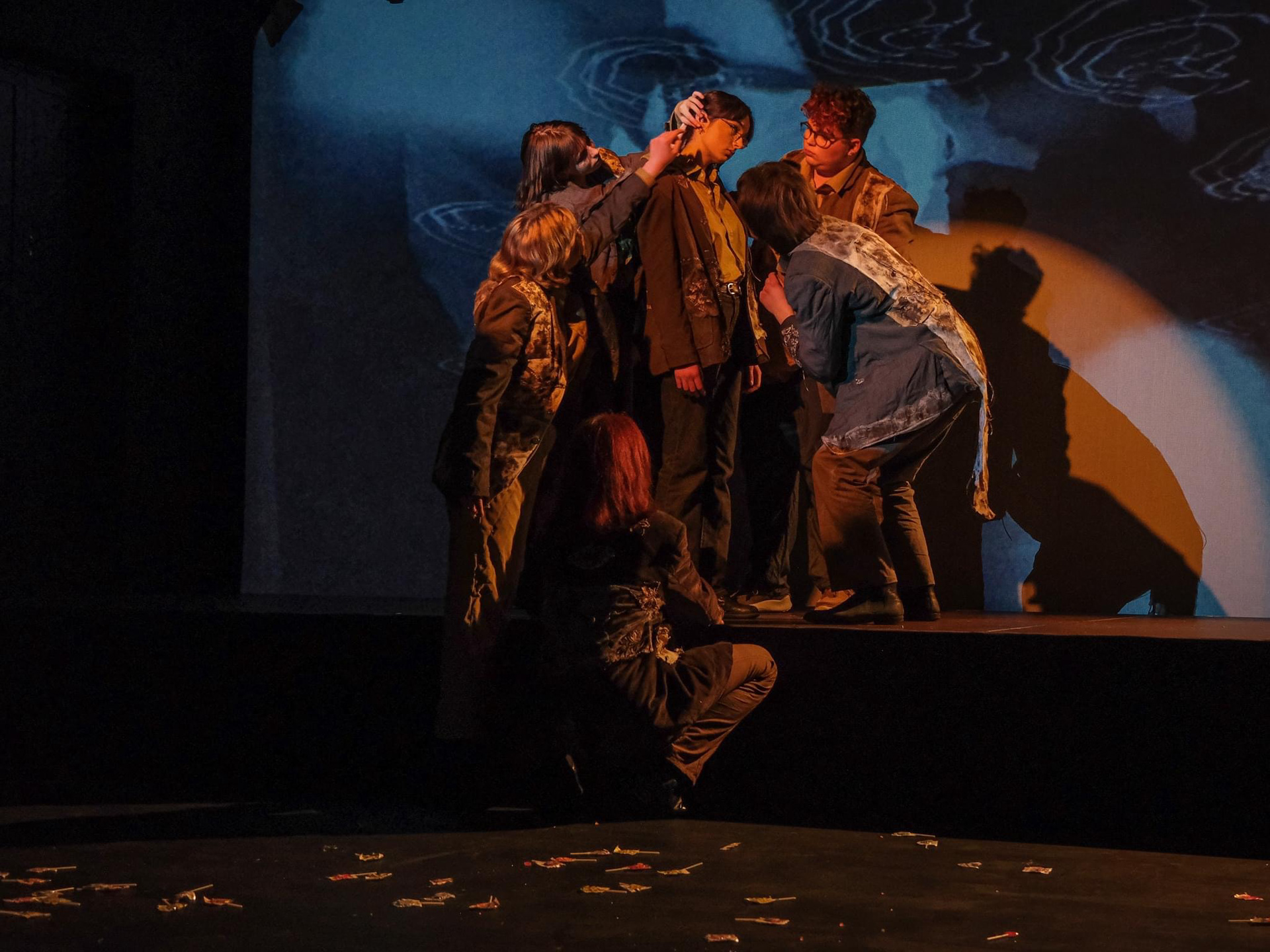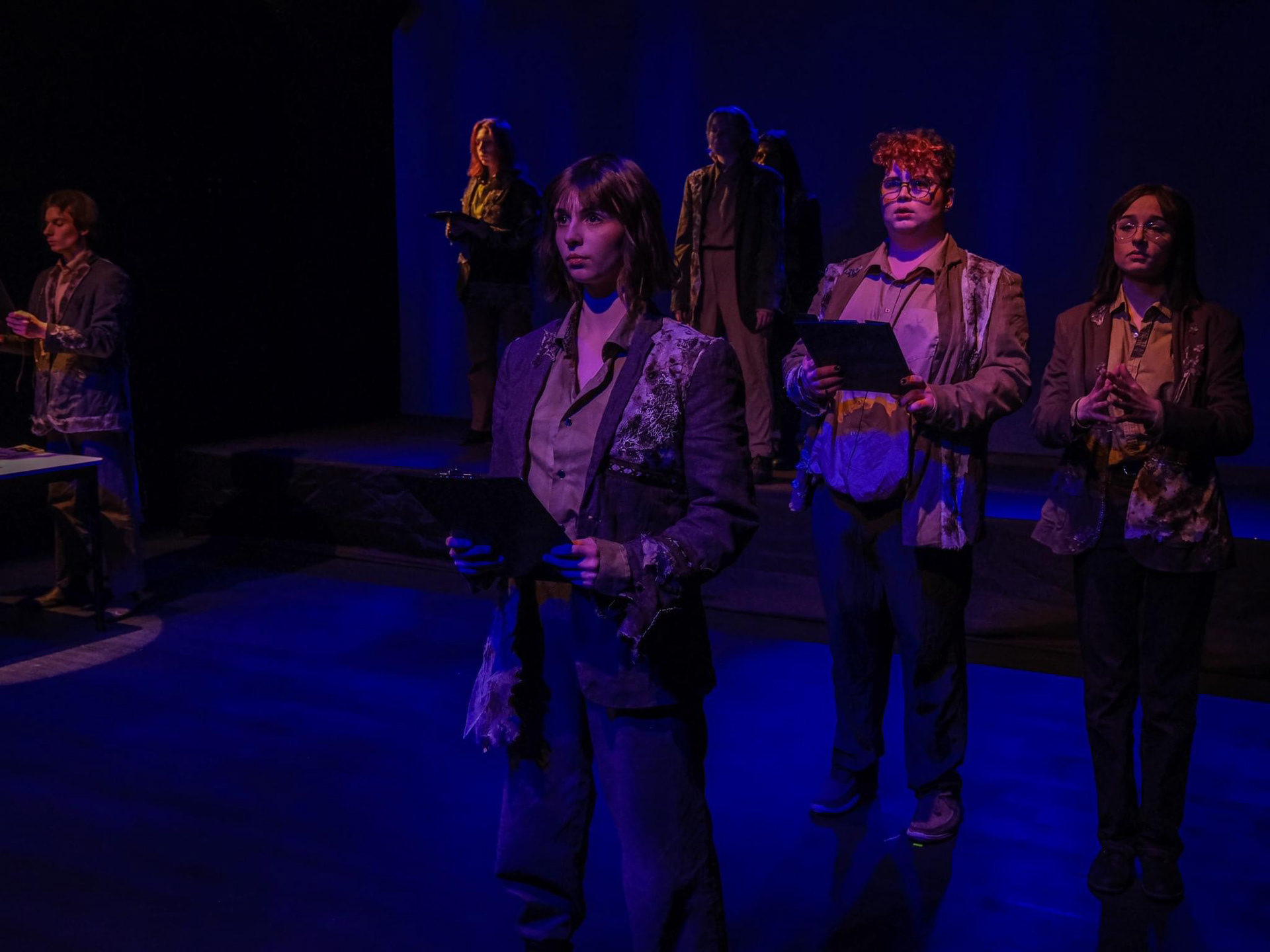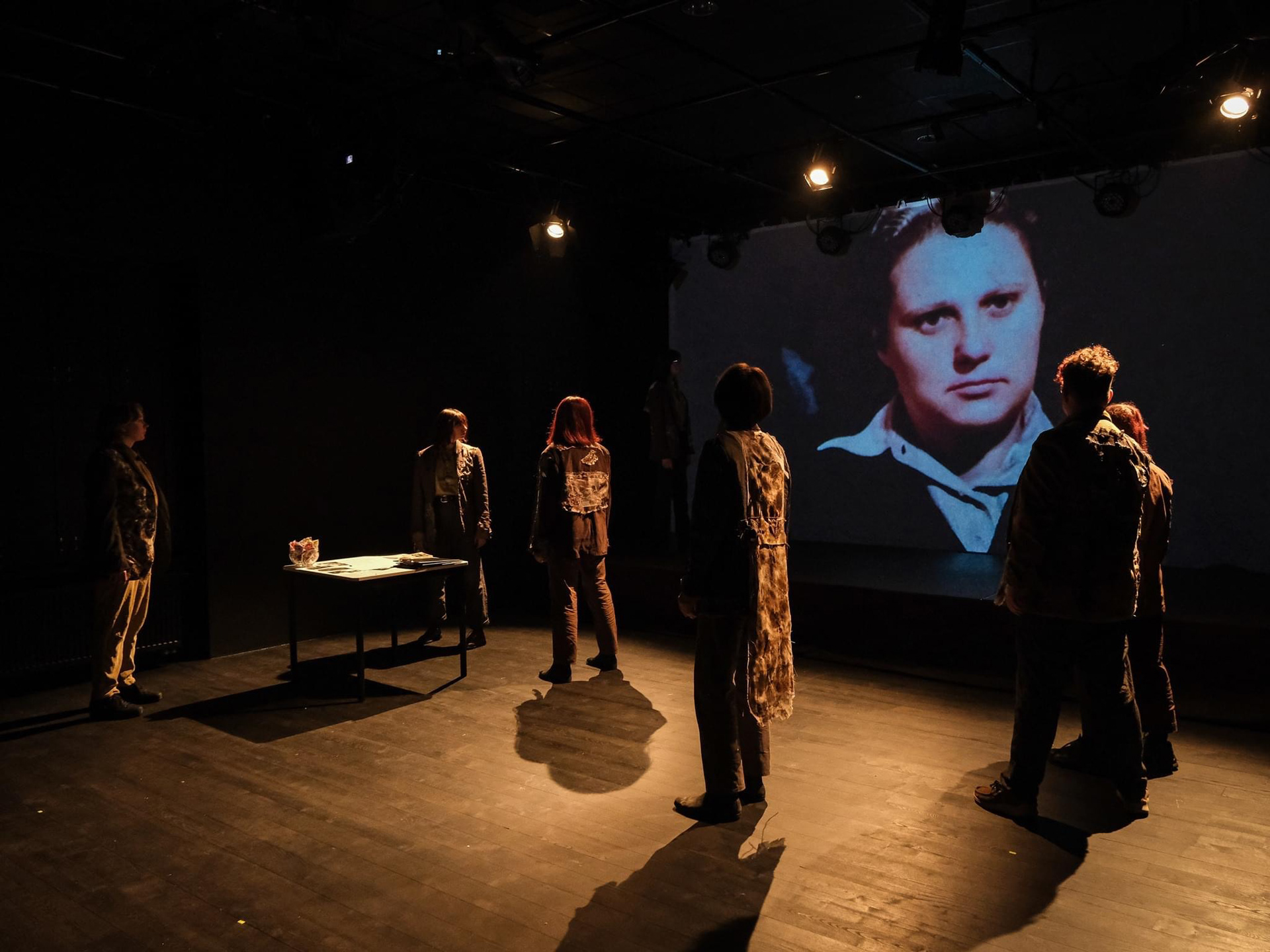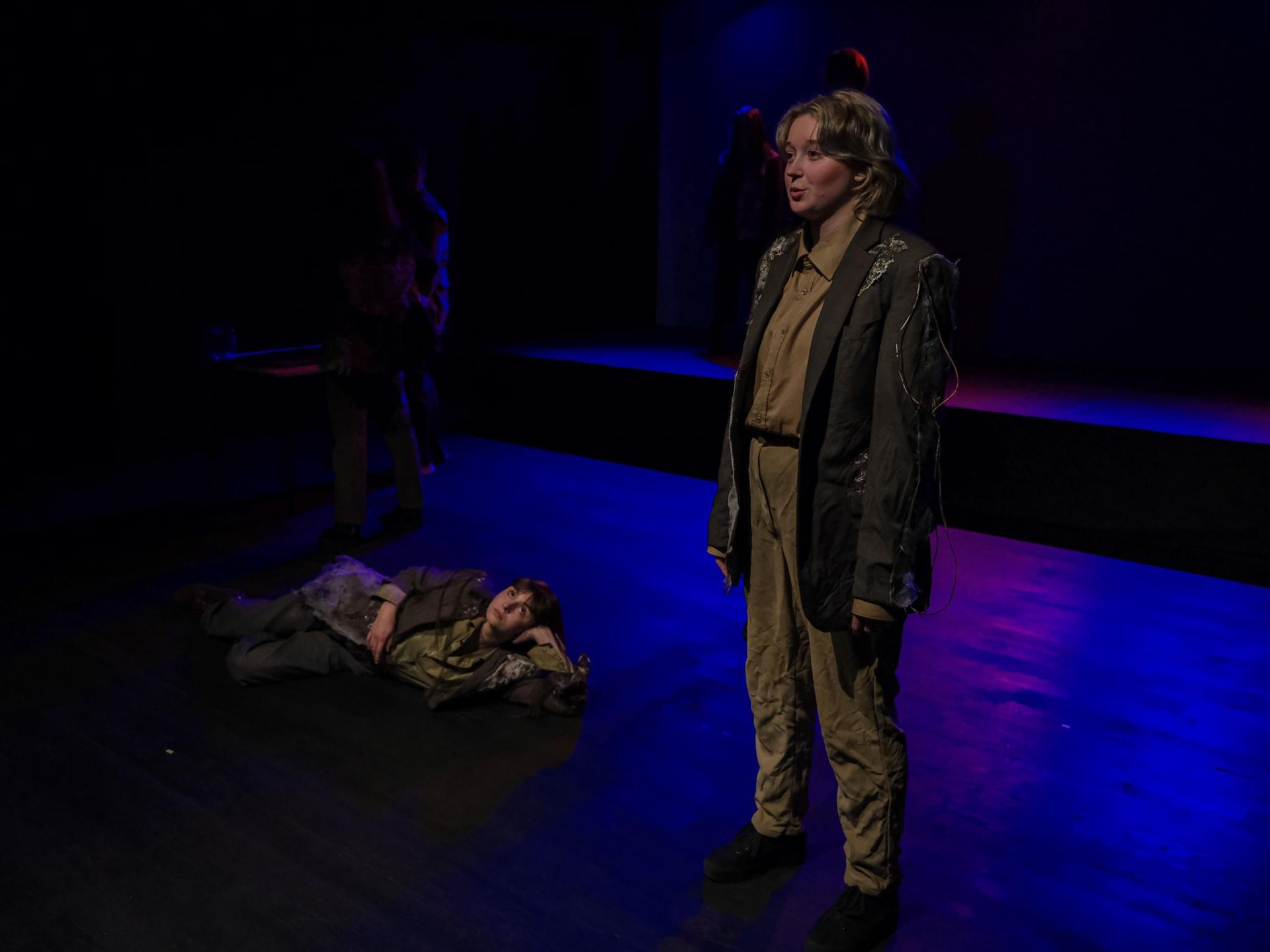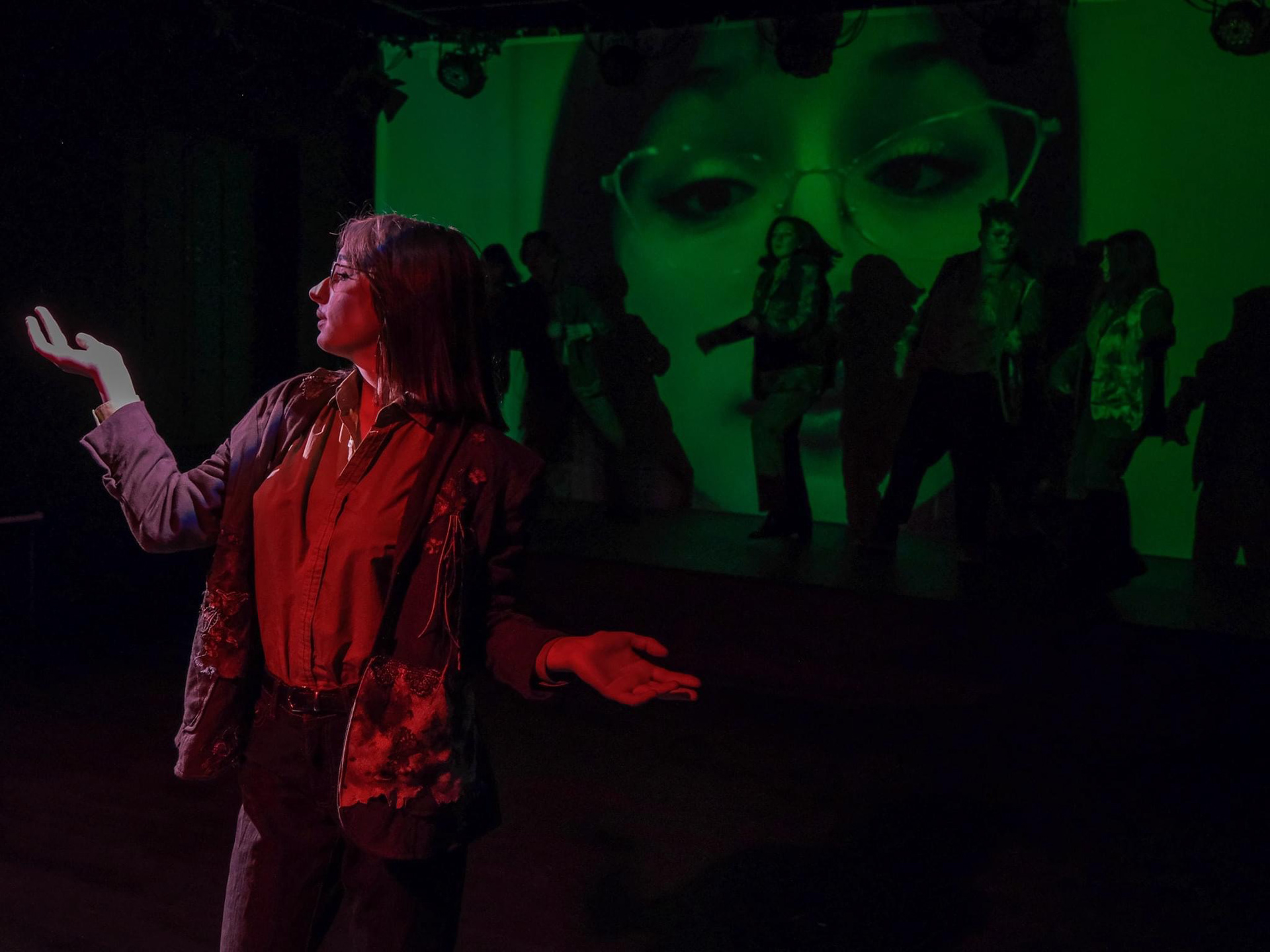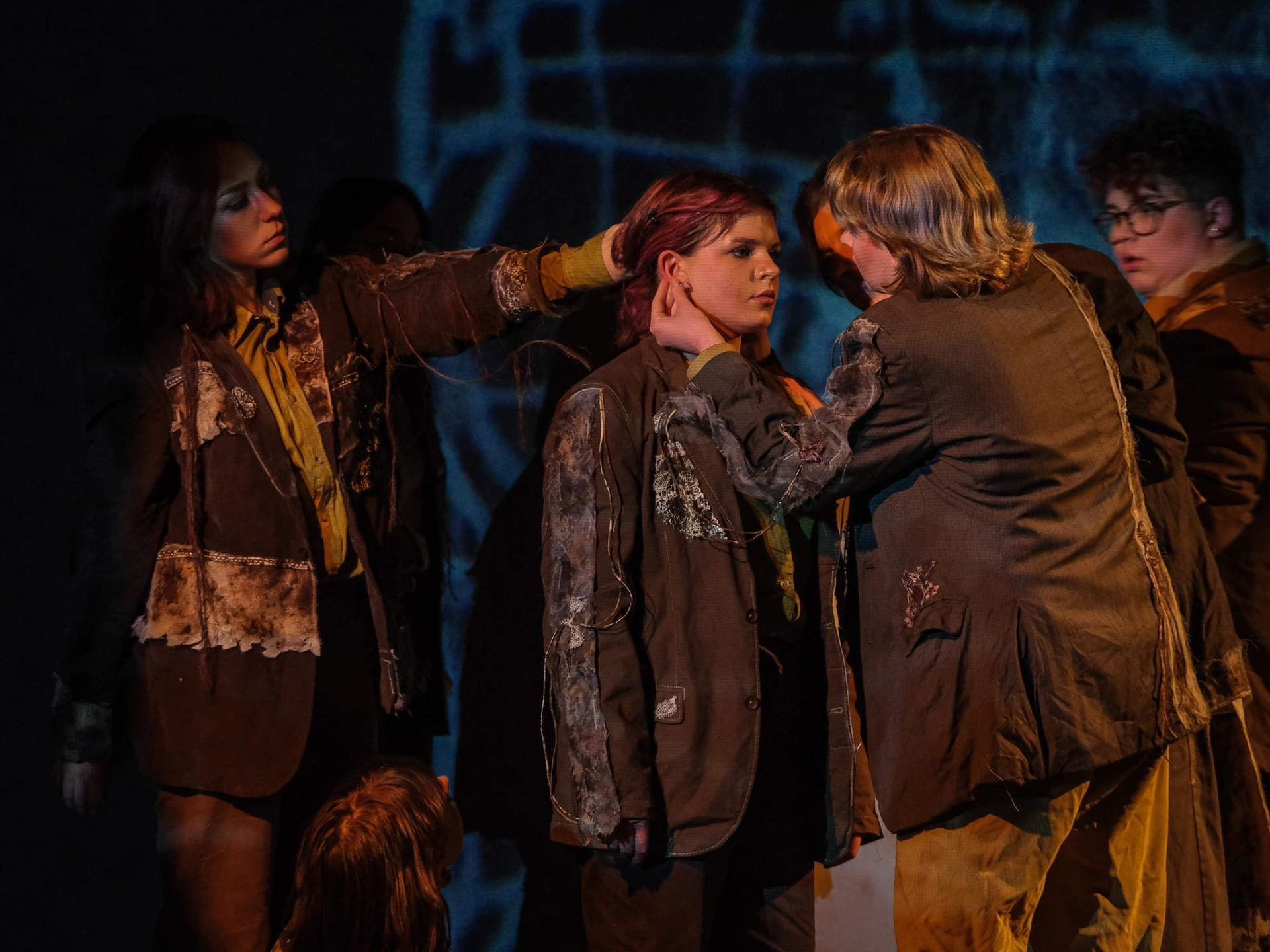Three Times Modrzewska is a multi-layered performance project born out of an artistic investigation into the life and legacy of Krystyna Modrzewska — a transgender, Jewish doctor, anthropologist, and writer whose story has been largely forgotten by mainstream historical narratives. This interdisciplinary work seeks to not only restore her visibility, but to also reflect on what it means to engage with queer memory in the context of contemporary Poland.
Developed over the course of several months through workshops, archival research, and embodied experimentation, the project emerged as a performative triptych composed of three distinct, interwoven languages: text, movement, and new media. Each language is rooted in a different mode of relating to history — reading, feeling, and transforming — and corresponds to the three temporal chapters of Modrzewska’s autobiographical writing: childhood, adulthood, and old age. Rather than aiming for a biographical reconstruction, the project offers a fragmented and emotionally charged portrait of her life as it reverberates through the experiences of a younger generation of queer and trans performers.
The performance raises urgent questions: Who was Krystyna Modrzewska? What can we learn from her autobiographical writings today? How do her pre-war, wartime, and post-war experiences in Lublin reflect — or rupture — the realities of those born after the year 2000? And most importantly, how can her life become a mirror for contemporary reflection on identity, place, and belonging?
These questions echo through the aesthetic and conceptual choices of the piece. The performers — all of them young adults — do not attempt to play the role of Modrzewska. Instead, they use her story as a tool for self-inquiry, a spark for queer reimagination, and a form of intergenerational dialogue. What emerges is a collective, performative portrait that is as much about the present as it is about the past.
The work draws directly on Modrzewska’s writing, including excerpts from her autobiographical trilogy (Three Times Lublin, Czas przedostatni, Na krawędzi chaosu) as well as her early academic thesis, Morphology of the Outer Ear. These texts are filtered through contemporary voices and bodies — sometimes read, sometimes danced, sometimes distorted through video projection and sound.
The scenography is minimal yet evocative: projections flicker across bare walls, live video interferes with presence, costumes by Harpy Queen blend historical references with queer iconography. The body becomes both archive and oracle — a surface of inscription and refusal. The act of performance becomes a collective ritual of reclamation, solidarity, and defiance.
This artistic investigation is also deeply situated in Lublin — the city where Modrzewska spent most of her life. The project is anchored in local memory, but speaks broadly to questions of visibility, marginalization, and belonging. In choosing to work with young performers, many of whom identify with LGBTQ+ experiences themselves, the creators of Three Times Modrzewska open up a space where personal and political lines blur, and where history is not simply inherited but activated.
Creative Team: Performers: Adrianna Dras, Aleksandra Fudalej, Daniel Grabowski, Karolina Jatczak, Aleksandra Najda, Nikola Owczarkiewicz, Olaf Staszak; Direction and Dramaturgy: Iza Gawęcka; Multimedia, Music Composition, and Production: Simona Kasprowicz; Costumes: Harpy Queen; Creative and Research Collaboration: Patrycja Dołowy, Maciej “Gąsiu” Gośniowski, Teresa Klimowicz, Alina Synakiewicz; Lighting Design: Marcin “Kabat” Kowalczuk; Live Video Projection: Karol Jakóbczyk; Organizer: Stowarzyszenie Studnia Pamięci; Support: Centrum Kultury w Lublinie, Galeria Labirynt, Piwnica Labiryntu, Ośrodek Brama Grodzka – Teatr NN, Fundacja Camera Femina; Visual Identity and Poster: Olga Winiarczyk
Premiere: The performance premiered on December 16, 2022, at Centrum Kultury in Lublin, accompanied by a visual and sonic installation. It was presented with free public access and later made available online.
Archival and Visual Sources: The piece incorporated historical materials from the collections of Ośrodek Brama Grodzka – Teatr NN, along with visual interventions and textual citations that reframed Modrzewska’s words through a queer, contemporary lens.
Funding and Support: The project was supported by the City of Lublin and co-funded by the Museum of Polish History in Warsaw as part of the “Patriotyzm Jutra” (Patriotism of Tomorrow) program.
At a time when queer and trans lives remain under threat, and the past is often rewritten through the lens of dominant ideologies, Three Times Modrzewska asserts the urgency of speaking from the margins. It is not a eulogy but a gesture of return — a queer act of storytelling that refuses to let the archive remain silent. Through the layering of memory, body, and voice, it imagines history otherwise: fragile, embodied, and defiantly alive.
